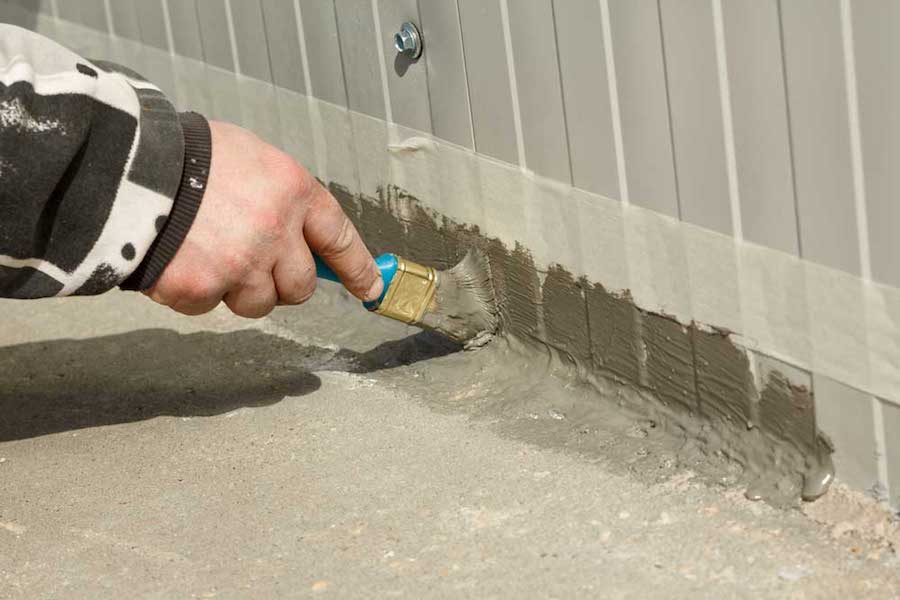An overview of common types of coatings

When it comes to protecting your building and exterior surfaces, there are many options available for coatings, all of which have slightly different uses. The applications of those coatings are different, too, which means proper training in correct application is important.
Epoxy
Epoxy is a resin that can be found in many forms, including coatings, polymers, and paint. It’s known for strong adhesion, especially when used in floor coatings, as well as chemical and heat resistance.
There are two basic components of an epoxy: a resin and a hardener. The resin is typically light (sometimes almost clear) and close to odor free. Hardeners are darker in color and have a slight odor. When mixed, the two components bond together to form a strong, rigid plastic material. Application methods can include rolling, brushing, or troweling.
Urethane
Urethane coatings are often used in exterior applications as they offer great protection against UV rays, rain, snow, and other weather-related corrosive agents. They resist scratching, abrasion, and other damage from impact as well.
Urethane products are typically applied by spraying or brushing and rolling. Most products bond well in multi-coat applications, and they can cure in lower temperatures.
Elastomeric
Elastomeric coatings are protective barriers that can be applied on interior or exterior walls, and they are sometimes known as latex coating or acrylic latex. They’re applied as a liquid and become a flexible, stretchable coating when dry.
Elastomeric coatings can also be used on concrete to help waterproof the surface, as well as make it resistant to damage from solvents or cracking, peeling, and flaking. The products dry quickly with minimal odor and retain their color for long periods of time.
These are three of the most common types of coatings, although even more exist for specialty uses. Applying an incorrect coating or applying one incorrectly can be a costly mistake. When it comes to applying a coating to your commercial structure, it’s best to consult a professional for information on the best coating and correct application process.
